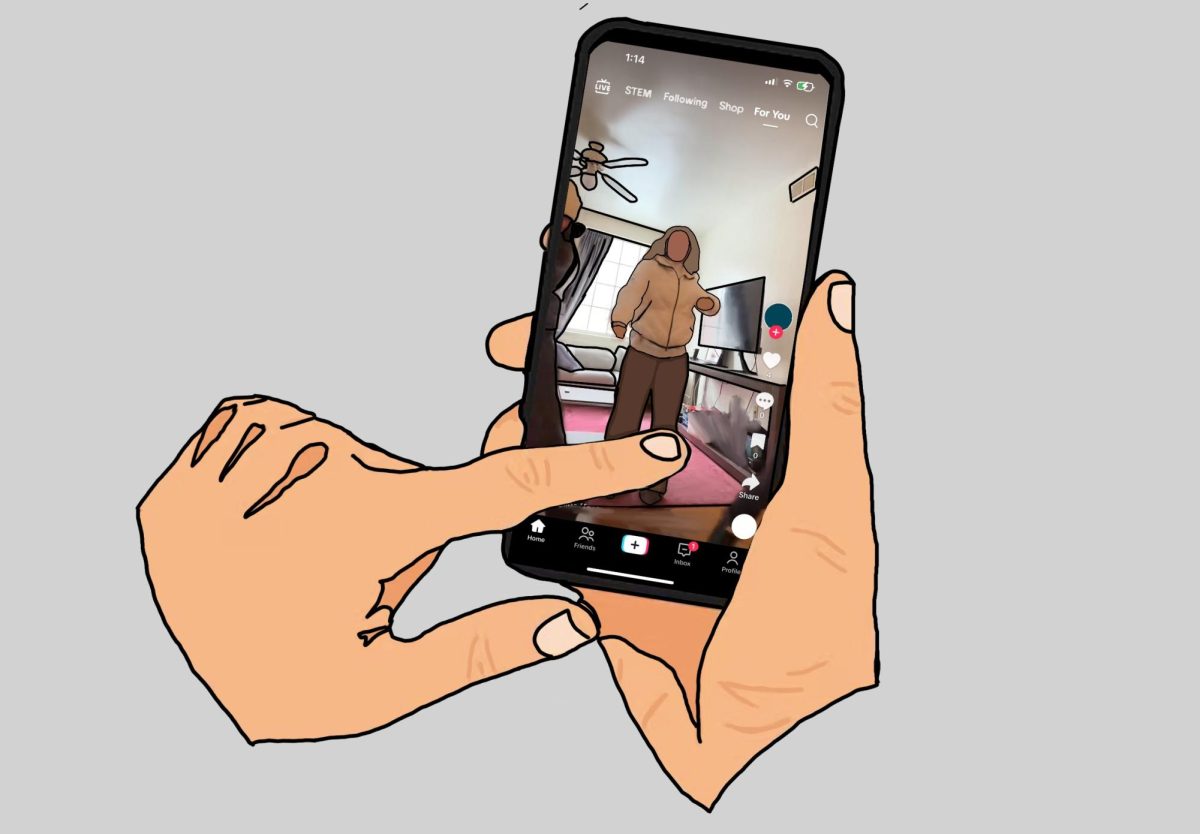On the night of Jan. 18, the United States banned the social media app TikTok. At 10:30 that night, although clocks continued to tick and tock, the hearts of Generation Z shattered. Their hearts skipped, not one, not two, but five big booms. The ban lasted only a few hours; however, it meant that 21st-century adolescents had to live in a world without TikTok. How could the “screenagers” manage? What was it like for them to endure life without TikTok?
As a college-aged student and a proud TikTok user, I can tell you exactly how the night went down.
The dreadful sequence started when my peers and I tried to log in. At first, everything seemed normal and a video began to play. Then, the unthinkable happened. We received the following message: “We’re working to restore our service in the U.S. as soon as possible, and we appreciate your support. Please stay tuned.” As our eyes reached the end of the line, the words’ meanings infiltrated our minds. TikTok had died, sparking grief in teens worldwide.
The first feeling was denial. People posted screenshots of the message that TikTok had sent on their social media with powerful, sentimental captions such as crying face emojis and memes. Many people – myself included – opened the app over and over, hoping to view my “For You” page one last time.
The stark situation led me to pursue Instagram and Snapchat, but I was quickly underwhelmed. TikTok is the only website where I am stimulated enough. I need at least three Subway Surfers storytime videos to stay engaged, and TikTok is the only social media app that provides me with that marvel.
After denial came both anger and depression. I saw beloved creators on Instagram angrily cursing Congress, and others begging for donations with tears streaming down their faces. I was angry, even catching myself in math class saying, “I can no longer watch Peter’s Pasta? That guy that makes more pasta every day!” My peers’ eyes welled up with raw emotion, many asking what they could do to support me as I grieved.
Then, just as bargaining and acceptance were sure to ensue, the cycle of grief came to a halt. TikTok spouted back to life, allowing the nation’s young people to return to their favorite waste of time. Luckily, the world does not know what would happen if Generation Z accepted TikTok’s morbid death. Maybe a new era of actual conversations would emerge. Or, more likely, my generation and I would awkwardly stare at each other more often.



